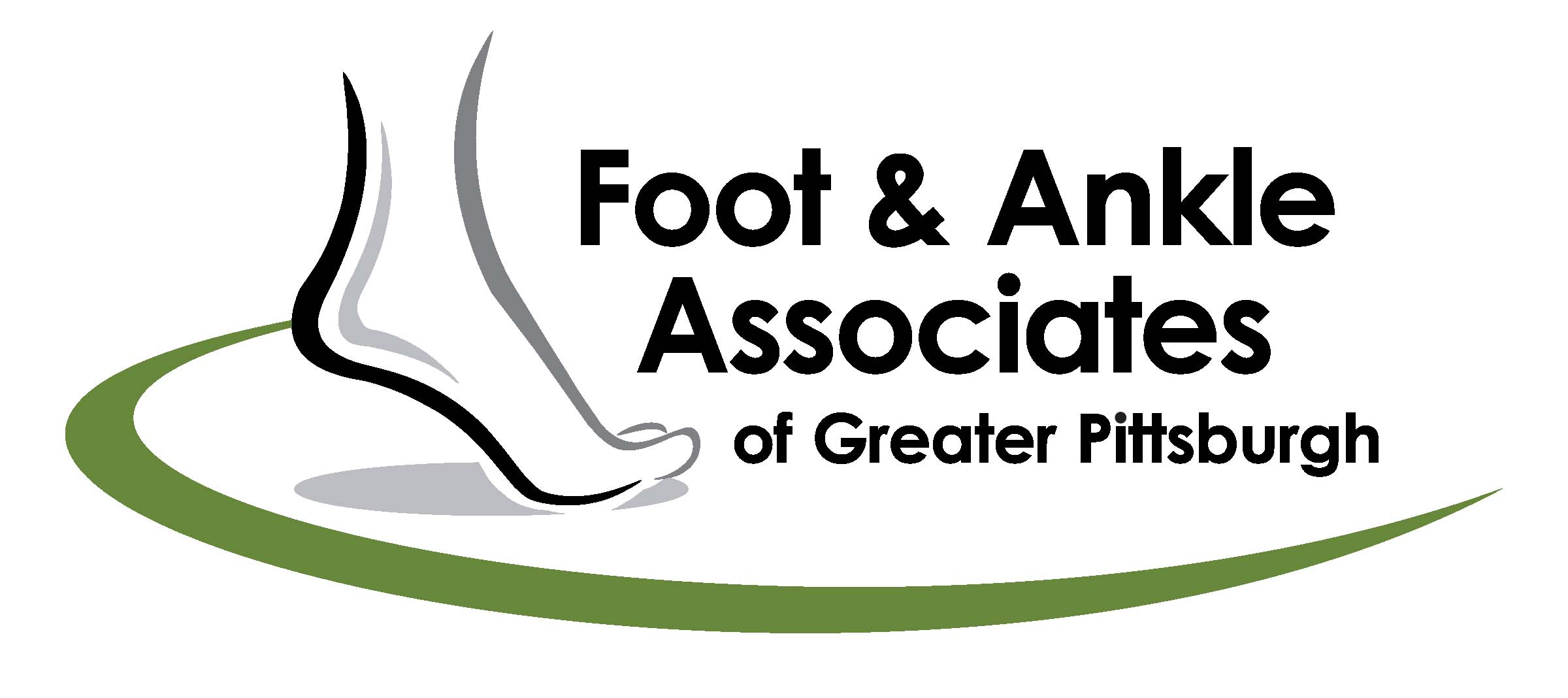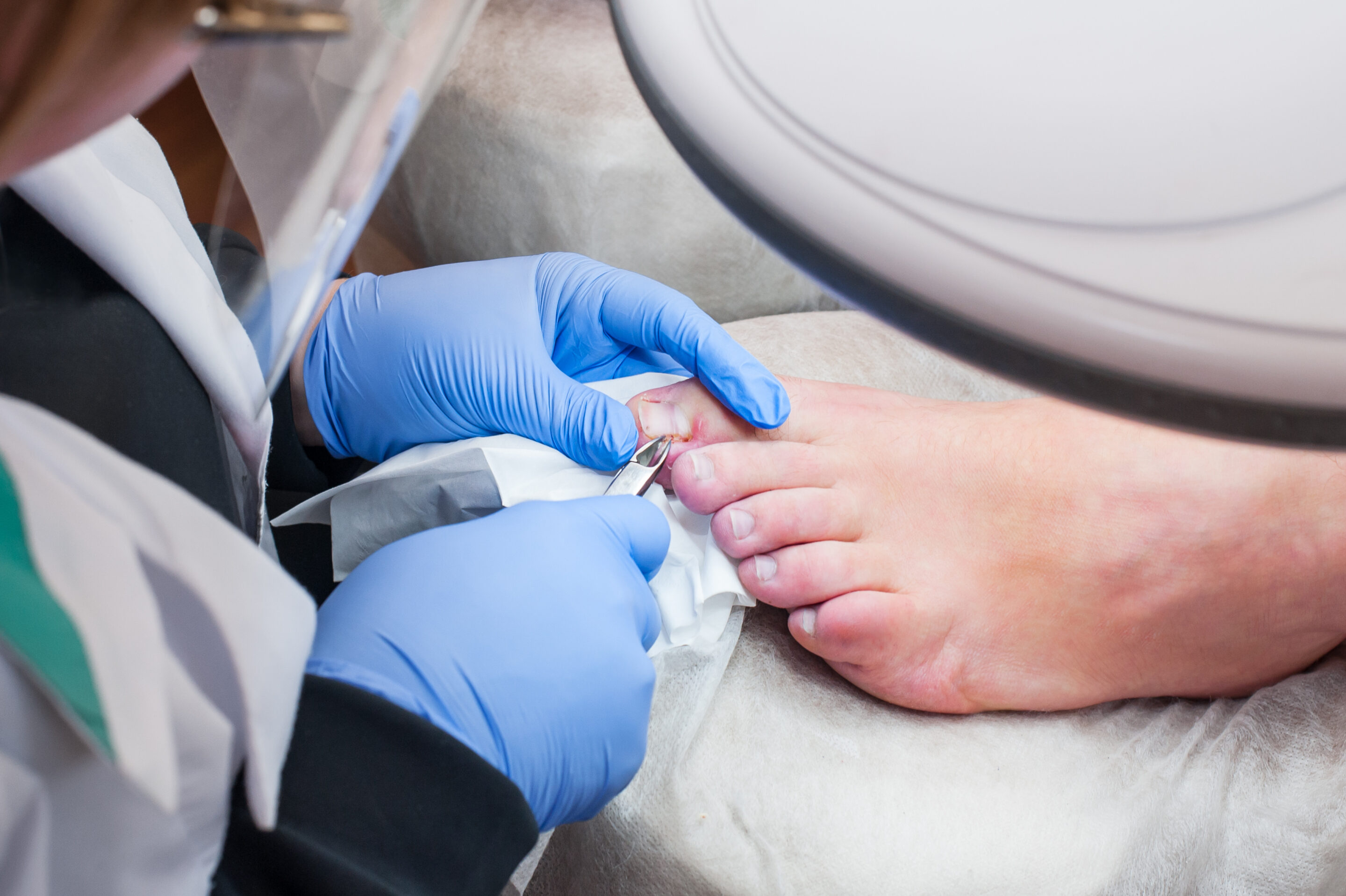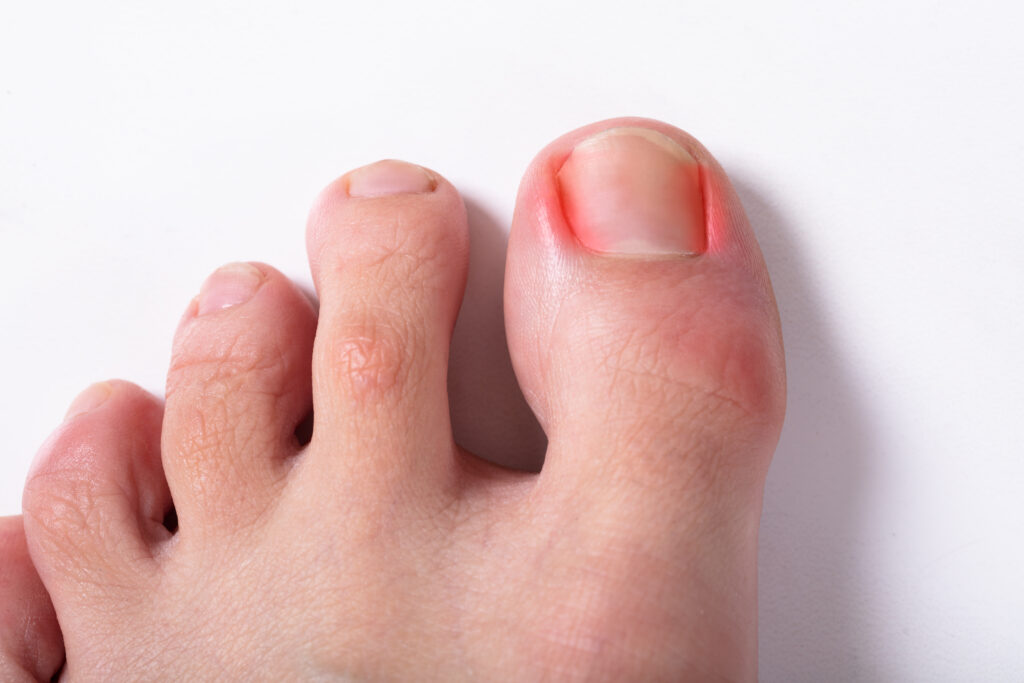Ingrown Toenails
Are you suffering from painful, unsightly toenails that interfere with your everyday life? You are not alone. Ingrown toenails represent a common condition that can cause significant discomfort.
If the sides of your toenails grow downward into the surrounding flesh, you may have ingrown toenails. Fortunately, there are plenty of safe treatments available to help alleviate pain and prevent further complications. If you are suffering from ingrown toenails, our physicians at the Foot & Ankle Associates of Greater Pittsburgh are here to help.
What Causes Ingrown Toenails?
While some people are genetically predisposed to ingrown toenails, there is a range of factors that may increase the likelihood of a toenail developing, including:
- Tight shoes: Tight shoes that put pressure on the toes may increase your likelihood of developing an ingrown toenail, particularly if you have an unusual foot structure.
- Trimming toenails too short: If you trim your toenails too short, they may start to grow back at an odd angle.
- Rounding your nails during trimming: Rounding your nails may encourage them to grow into the skin. As such, you should cut your nails straight across.
- Nail trauma: Trauma caused by dropping heavy items or a stubbed toe may exacerbate or cause an ingrown toenail.
What Should You Do About an Ingrown Toenail?
Having ingrown toenails does not necessarily mean there is a serious issue, and some are treatable at home.
Home Remedies
Here are some tips for treating an ingrown toenail at home:
- Avoid “at-home” surgery: First things first, remember to avoid cutting the nail or skin yourself. As well as worsening the condition, this could cause an infection that requires further treatment.
- Soak the foot in water: Soaking your feet several times a day will help reduce inflammation and aid healing. Adding Epsom salts to the water may improve the efficacy of this treatment.
- Bandage the toe: Bandaging the toe will protect it from dirt and debris as your ingrown toenail heals.
- Wear loose shoes: Loose-fitting shoes will reduce pressure on your ingrown toenails and prevent further damage.
When to See Us
If your ingrown toenails do not start to improve after three days of home treatment, we recommend visiting our office for professional treatment. If the area is painful, red, and inflamed, you need to get treatment. You may have an infection, which can cause larger issues.
If you have diabetes, poor circulation, or related conditions that put you at risk of complications, we recommend you skip the home remedies and head straight to the professionals. These conditions can cause problems with healing, meaning they can quickly become infected. If you have diabetes and/or neuropathy, remember to regularly check your feet for ingrown toenails or other foot problems.
Ingrown Toenail Treatments
Our treatment recommendations depend on the severity of the condition.
In the worst cases, a portion of the toenail that is impacting the skin and causing your pain may need to be removed. Antibiotics are commonly prescribed as well if there is an associated infection.
Every surgical ingrown toenail procedure will involve numbing agents to reduce pain. Recovery from ingrown toenail treatments involves soaking the toe in epsom salt baths and keeping the toe clean with a dressing until it is healed.
Get the Best Treatment for Ingrown Toenails
If you are tired of dealing with painful ingrown toenails, get in touch with Foot and Ankle Associates of Greater Pittsburgh today. Our friendly physicians will examine your feet to produce a treatment plan that suits your needs and lifestyle.
Remember – no problem is too big or small. If you are bothered by painful toenails, you deserve the best treatment in Beaver, PA. Get in touch at (724) 774-1525 or email us via our contact form, and one of our team members will be in touch as soon as possible.
Contact Us
Office
336 College Avenue, Suite 106, Beaver,
PA , 15009
Monday: 8am – 12pm
Tuesday: 8am – 4:30pm
Wednesday: 8am – 4:30pm
Thursday: 8am – 4:30pm
Friday: 8am – 12pm
Saturday: Closed
Sunday: Closed


